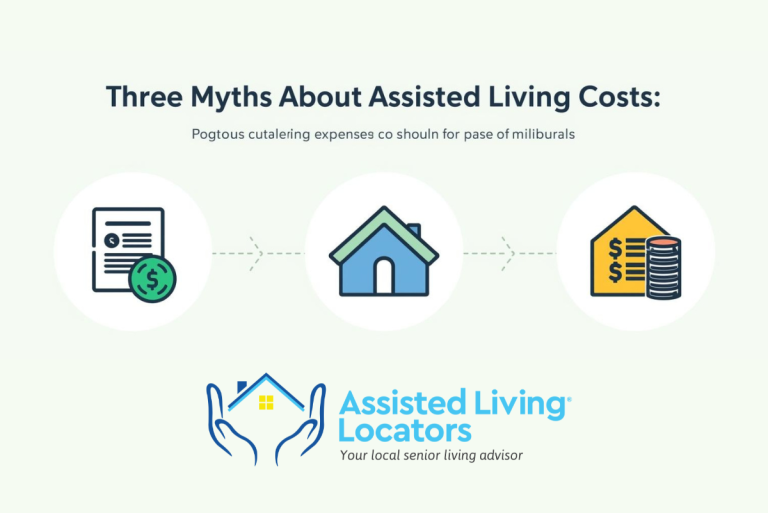Caring for a loved one with dementia presents a profound journey, especially when it comes to addressing their dietary needs and eating habits. Beyond memory loss, dementia can disrupt appetite and dietary routines, underscoring the critical role of nutritional care in enhancing the health and comfort of seniors. Up to 70% of people with dementia experience eating difficulties. This can range from mild changes in appetite to severe swallowing problems.
It's important to comprehend and adjust diets to meet these evolving needs, striving to provide essential nourishment that supports their overall well-being and quality of life.
What Are the Common Nutritional Challenges for Elderly Loved Ones?
Cognitive decline from dementia can profoundly impact a person's relationship with food. As the disease advances, individuals may have difficulty recognizing food, forget to eat, or undergo changes in taste and smell. These issues can lead to reduced appetite and a heightened risk of malnutrition, which can cause severe health problems if not addressed.
Weight loss is a frequent issue for those with dementia. Research shows that up to 50% of individuals with Alzheimer's disease experience substantial weight loss.
Common Issues Faced
Among the most prevalent challenges faced by caregivers are decreased appetite and dysphagia (difficulty swallowing). Decreased appetite can lead to inadequate calorie intake and nutrient deficiency, exacerbating frailty and weakening overall health. Dysphagia, on the other hand, complicates mealtime as it increases the risk of choking and aspiration pneumonia, necessitating modified diets and careful supervision during meals.
In navigating these nutritional challenges, caregivers play a pivotal role in monitoring dietary intake, adapting meal plans, and seeking professional guidance to ensure their loved ones receive the necessary nutrition despite the complexities imposed by dementia. By understanding these challenges and proactively addressing them, caregivers can significantly enhance the quality of life and nutritional well-being of seniors under their care.
Fundamentals of a Balanced Diet for Dementia Patients
Providing a balanced diet for elderly loved ones with dementia is essential for their overall health and well-being. Understanding the necessary nutrients and strategies for maintaining hydration can significantly improve their quality of life.
Essential Nutrients
Seniors with dementia often face deficiencies in key nutrients crucial for maintaining cognitive function and overall health. These include:
- Omega-3 fatty acids: Found in fatty fish like salmon and walnuts, omega-3s support brain health and may help slow cognitive decline.
- Antioxidants: Found in colorful fruits and vegetables, antioxidants combat oxidative stress and inflammation associated with dementia.
- Vitamin D: Sunlight exposure and fortified foods like milk and cereals are essential sources, aiding in bone health and potentially reducing dementia risk.
Hydration
Maintaining adequate hydration is vital for seniors with dementia, as dehydration can exacerbate confusion and increase the risk of urinary tract infections. Caregivers can encourage fluid intake through:
- Offering small, frequent sips of water, juice, or herbal teas throughout the day.
- Incorporating hydrating foods like soups, fruits with high water content (e.g., watermelon, oranges), and smoothies.
- Monitoring fluid intake and ensuring beverages are easily accessible and appealing.
By prioritizing these fundamentals of nutrition—ensuring adequate intake of essential nutrients and promoting hydration—caregivers can play a crucial role in supporting the health and well-being of their loved ones with dementia.
Addressing Decreased Appetite
Navigating decreased appetite in elderly loved ones with dementia requires creativity and patience to ensure they receive adequate nutrition for their well-being. Enhancing meal appeal can play a crucial role in stimulating appetite and encouraging regular eating. By presenting meals on colorful plates with contrasting foods and using garnishes like herbs or sauces, caregivers can make meals more visually appealing. Additionally, cooking aromatic foods such as soups or baked goods can stimulate appetite through inviting kitchen scents.
Opting for small, frequent meals over traditional three-meal schedules can also be beneficial. These smaller meals are easier for seniors with reduced appetite or swallowing difficulties to consume. They provide a steady supply of nutrients throughout the day, maintaining energy levels and reducing the risk of discomfort from large meals. By implementing these strategies, caregivers can support their loved ones in maintaining a balanced diet despite the challenges posed by dementia, fostering a more enjoyable and manageable mealtime experience.
Managing Difficulty Swallowing
Caregivers face significant challenges when managing difficulty swallowing (dysphagia) in elderly loved ones with dementia, requiring careful consideration of food preparation and choices to ensure safety and comfort.
Safe Food Preparation
Modifying food textures is crucial to prevent choking and facilitate easier swallowing:
- Texture Modification: Adjust food textures based on swallowing ability. For example, pureeing or chopping foods into smaller pieces can aid in easier consumption.
- Moisture Content: Ensure foods are moistened with gravies, sauces, or broths to soften textures and enhance swallowability.
- Avoid Hard or Tough Foods: Steer clear of hard, crunchy, or sticky foods that may pose choking hazards.
Appropriate Food Choices
Selecting suitable foods is essential for seniors with swallowing difficulties:
- Recommended Foods: Opt for soft, tender foods such as cooked vegetables, mashed potatoes, yogurt, and well-cooked meats that are easier to chew and swallow.
- Avoidance: Restrict foods that are dry, crumbly, or require extensive chewing, such as raw vegetables, tough meats, and nuts.
By adhering to these guidelines—modifying food textures to prevent choking and selecting appropriate foods—caregivers can effectively manage difficulty swallowing in their loved ones with dementia, ensuring meals are safe, enjoyable, and supportive of their nutritional needs. These measures contribute to a more comfortable dining experience and promote overall well-being despite the challenges presented by dysphagia.
Supplementation and Medication Management
Caregivers play a crucial role in ensuring elderly loved ones with dementia receive adequate nutrition and manage medications effectively to support their overall health and well-being.
Nutritional Supplements
Supplementation can help address nutritional deficiencies in seniors with dementia:
- Guidelines for Use: Consult healthcare providers to determine appropriate supplements based on individual nutritional needs. Common supplements include vitamin D, omega-3 fatty acids, and multivitamins.
- Administration: Administer supplements as recommended, considering factors like dosage, timing, and interactions with medications to maximize effectiveness and safety.
Medication Interference
Managing medications is crucial, as up to 35% of older adults experience medication-related difficulties, with dysphagia affecting as many as 22% according to the Journal of the American Geriatrics Society. It's important to consult healthcare providers to monitor medications that could impact appetite or swallowing function. Adjusting dosages or schedules as needed can help minimize side effects.
Coordinating care ensures clear communication between caregivers and healthcare providers to address concerns and optimize medication management for overall health. By following these strategies—utilizing supplements to meet nutritional needs and managing medications to support health—caregivers can significantly improve the well-being and quality of life for their elderly loved ones. These efforts contribute to a comprehensive approach to care, promoting optimal nutrition and medication management despite the challenges associated with aging.
In conclusion, tailored nutritional strategies are crucial for effectively caring for elderly loved ones with dementia, addressing challenges such as decreased appetite and swallowing difficulties with patience and adaptability. Caregivers' dedication in understanding these complexities and implementing supportive mealtime techniques significantly enhances their loved ones' nutritional intake and overall well-being. To fellow caregivers, your steadfast commitment is invaluable—remain patient and adaptive in your approach.





